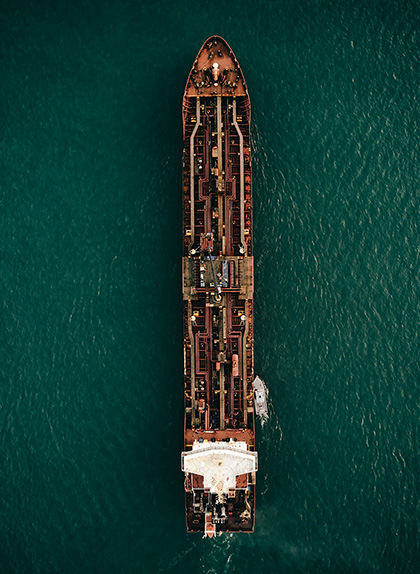Evacuations from High-Risk Locations Call +44 (0)1202 308810 or Contact Us →

Hijack for Ransom in the Gulf of Guinea
26 Feb 2018
Early 2018 has seen a significant increase in the targeting of merchant vessels for ransom of crew members within the Gulf of Guinea. In both the Barrett and Marine Express incidents, the vessels were seized from or near Cotonou anchorage in Benin and released, with their crews unharmed, approximately a week later. Whilst it has not been confirmed, it is highly likely that the vessel owners made ransom payments. Incidents elsewhere in the region have involved smaller numbers of crew being removed from vessels and held for ransom ashore, typically in the Niger Delta region. The seizure of Chinese fishermen from Cameroonian waters was also believed to have been carried out by a Nigerian group.
Key Points
- MT Barrett and its crew were seized on 10 January and released on 16 January 2018.
- Marine Express was seized on 01 February and released on 06 February 2018.
- Crew members were kidnapped from a Chinese fishing vessel near Cameroon on 09 February.
Situational Summary
Maritime and Piracy: Early 2018 has seen a significant increase in the targeting of merchant vessels for ransom of crew members within the Gulf of Guinea. In both the Barrett and Marine Express incidents, the vessels were seized from or near Cotonou anchorage in Benin and released, with their crews unharmed, approximately a week later. Whilst it has not been confirmed, it is highly likely that the vessel owners made ransom payments. Incidents elsewhere in the region have involved smaller numbers of crew being removed from vessels and held for ransom ashore, typically in the Niger Delta region. The seizure of Chinese fishermen from Cameroonian waters was also believed to have been carried out by a Nigerian group.
Solace Global Comment
The recent development of maritime kidnap for ransom is not without precedent in the Gulf of Guinea. The master and six crew members were kidnapped following an attack on the MV Demeter in November in 2017, and kidnapping has long been a part of the modus operandi of criminal and insurgent groups operating in the Niger Delta region, targeting both local nationals and foreigners.
The previous trend in regional piracy emphasised the theft of cargo, particularly oil. This was driven by factors including the resale value of stolen fuel, and the anti-industry stance of many regional insurgent groups. Criminal groups in the Niger Delta developed relatively sophisticated bunkering and storage sites to for stolen oil, which was either stolen through ship-to-ship transfer, or during port operations. Such robberies varied in character; port-based operations were generally attempted through stealth, with relatively low-level skills required. Ship-to-ship robberies were more likely to involve the use of violence, with attackers using firearms or bladed weapons in order to prevent the crew from interfering with the attack. Limited numbers of kidnappings occurred alongside these incidents, typically occurring when cargo proved inaccessible, or when isolated crewmembers failed to reach safety in time. This type of kidnap, as opposed to the hijacking of the vessel, continues to be used, as demonstrated by the recent attack on a Chinese fishing vessel off Idenau, western Cameroon on 09 February.
The recent attacks in Cotonou demonstrate a partial shift towards hijackings specifically for ransom of the crew, with the cargo no longer a primary concern. This is likely to have been driven by a combination of both global and local factors. Firstly, the wholesale price for crude oil has dropped substantially in recent years, reducing the benefit-to-risk ratio of conducting robbery, storing cargo, and then reselling. Additionally, in late 2017, the Nigerian Army conducted Operation Crocodile Smile 2 in the Niger Delta region. As a result of this operation, a significant number of illegal bunkering and storage sites were destroyed, along with other elements of insurgent infrastructure. It is likely that this has restricted the ability of groups operating in the Niger Delta to effectively store oil for resale, making theft of oil unviable.
Despite the increase in hijackings, there has been no significant decrease in robberies and attempted robberies over the same period. Those engaged in petty criminality and theft of stores have not changed their methods of attack, nor have any security measures succeeded in making such low-payoff unattractive. Considering that such thefts tend to occur at anchor or in port, and both Cotonou hijackings occurred in similar circumstances, it is likely that measures to prevent boarding by petty criminals may act to impede or prevent boarding by hijackers.
SECURITY ADVICE
Maritime PiracyHighVessels in the Gulf of Guinea are advised to comply with BMP4 as far as practicable, including the use of hardening vessel measures and enhanced watches. All suspicious activity should be reported to local and regional authorities. Attacks and robberies are regularly reported across the region, both at sea and at anchor. Solace Global remain able to provide a full range of maritime security solutions in the Gulf of Guinea.